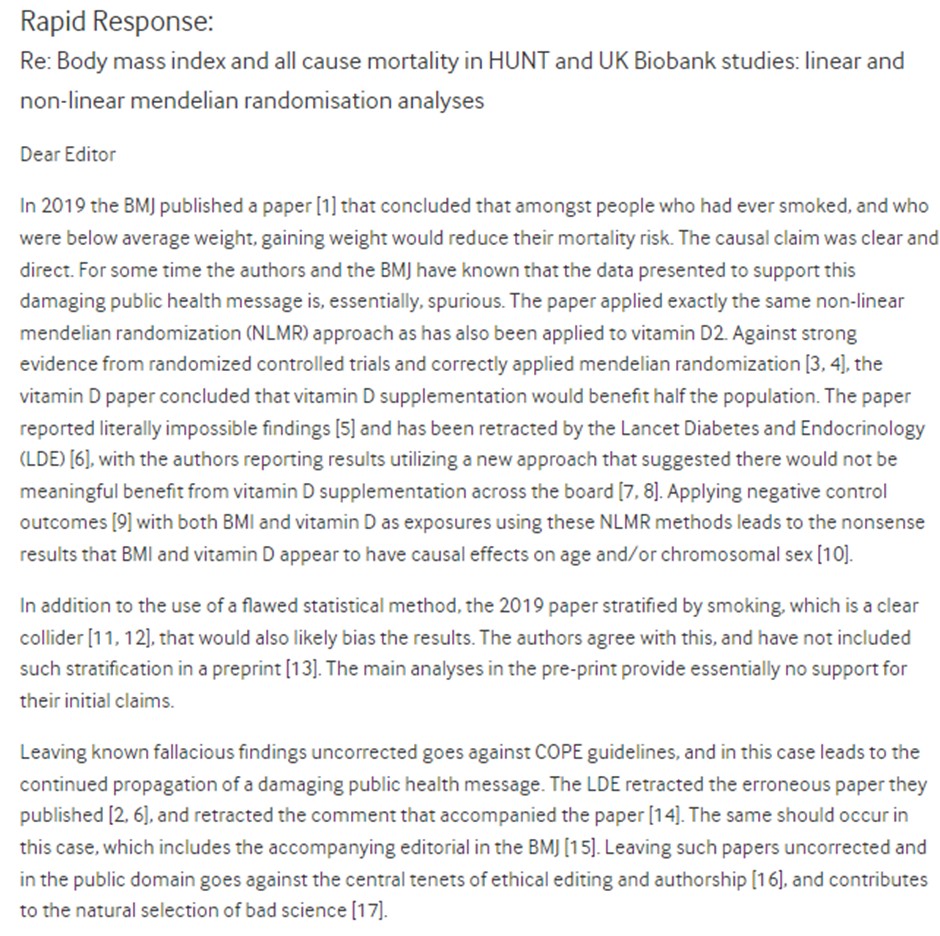1/n I agree with @yudapearl of the utterly brilliant contribution of Sewall Wright, who pioneered both ways of representing data and developing the "background knowledge" of how genetics provides the necessary causal anchoring for meaningful inference bristol.ac.uk/media-library/…
https://twitter.com/yudapearl/status/1068427615973732352
2/n it is comic of @yudapearl to suggest #bookofwhy sees year zero of the causal revolution as Wright -attached from preface, Causal Revolution was in the womb of artificial intelligence (term introduced 1956, but what is meant is @yudapearl work in AI) 
https://twitter.com/yudapearl/status/1068427615973732352…

3/n Some of that "background knowledge" in real-world causal inference is that something can't be in the womb 70 years after it’s born. Absorb the tone of the rest of the preface, or read @yudapearl twitter feed, or the book. How do other #causalinferencebook readers see this? 

• • •
Missing some Tweet in this thread? You can try to
force a refresh











